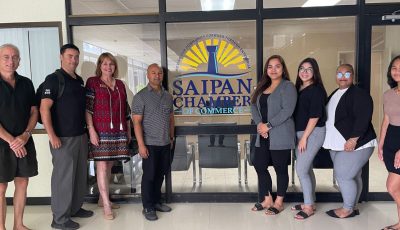NMTI offers revisions to charter school bill
In line with some concerns from Northern Marianas College, the Northern Marianas Technical Institute has submitted revisions to a House bill that would make it a public charter school.
These revisions appear to address concerns shared by NMC over the duplicity of roles the two institutions play in vocational or continuing education. The revised bill, or House Bill 19-4, would also drop the creation of a Higher Education Commission, as NMC has also recommended to the legislature.
In a letter to House education committee chair Rep. Felicidad Ogumoro (R-Saipan) last month, NMTI board chair John Gonzales and president Agnes McPhetres recommended that separate legislation be developed for the creation of a Higher Education Commission.
This would simplify legislation to create NMTI as a public charter school, they wrote.
In further defining the education commission’s role, Gonzales and McPhetres said this commission would be a public entity that creates policies governing the licensing of higher education institutions in the Commonwealth.
The commission would also issue and renew these post secondary education licenses, they wrote. On top of this, the commission would issue charter school license to any future charter school.
In defining NMTI’s function, they described NMTI as an educational institution to “provide training and education designed to meet the labor and economic development needs of the Commonwealth.”
Further, Gonzales and McPhetres said the original bill proposes to move the general education development program from NMC to the newly established NMTI.
But their revisions now recommend that this section of the proposed law be deleted because, “NMC’s position is that the GED program should remain at NMC.”
Further, they wrote, words like “vocational education, adult education, and continuing education” are not clearly defined in the bill.
They said, aside from these areas of education, the bill should focus on “career and technical education and training” and internships.
“In this regard, the goal of the currently established [NMTI] is to provide career and technical trades education and training for those individuals who did not complete high school as well as for high school graduates who are unemployed,” Gonzales and McPhetres wrote.
The original bill also gives power to the NMTI board to be the “Commonwealth Board or Commission for all federally funded vocational education programs” that the CNMI are eligible for.
But NMTI is now recommending that this authority be deleted from the bill because the CNMI governor should have the authority to designate this type of body.



























